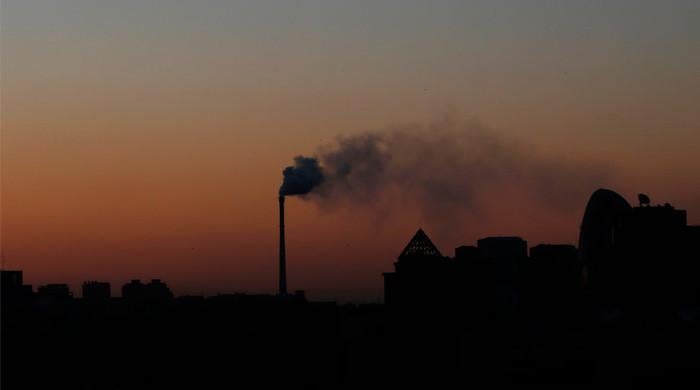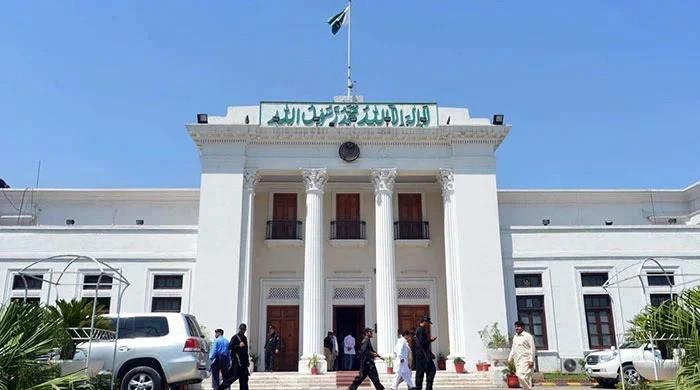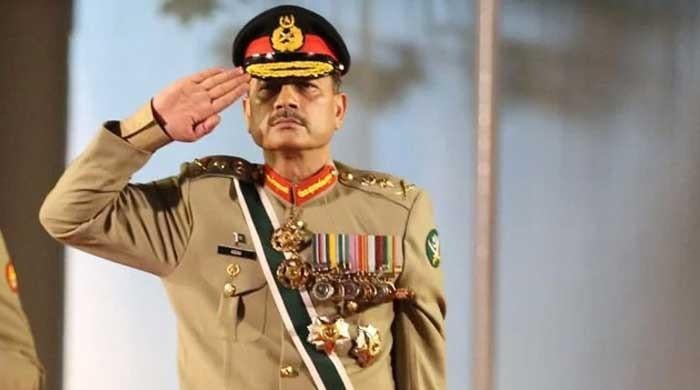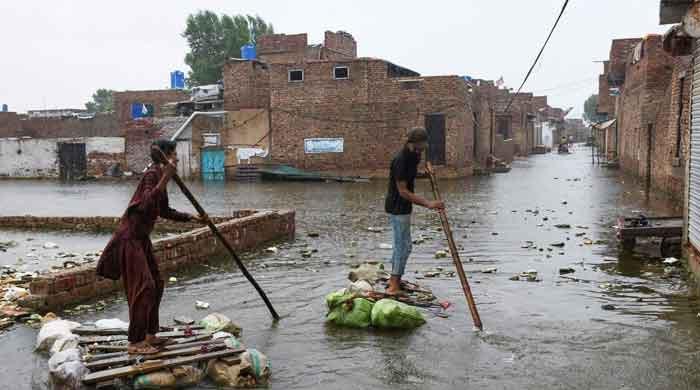Imran's agitation gambit
Political observers believe PTI was pinning hopes on Trump for any possible relief for PTI founder Imran Khan
February 19, 2025
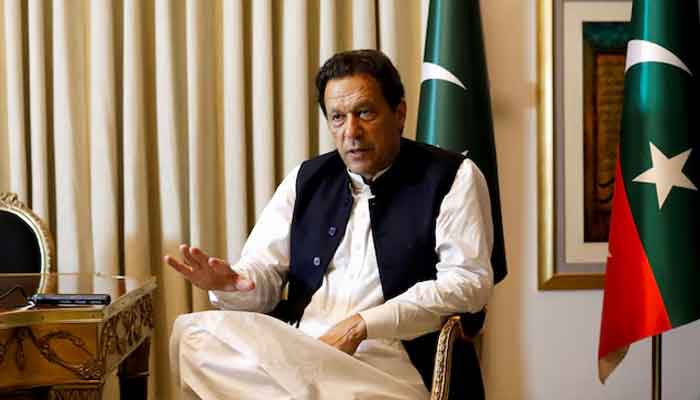
The recent signals coming out of Adiala jail clearly indicate that Pakistan Tehreek-e-Insaf (PTI) founder Imran Khan is in no mood to make peace with the incumbent government and will resort to repeating the past mistakes that have broadened the gulf between him and his former benefactors.
Khan has hinted at launching a country-wide protest movement to coerce the government into accepting his party’s demands, which are likely to be dismissed not only by the government but also by those who wield the real power in the country.
Critics feel Khan wants to keep the party in a futile perennial state of agitation that has neither benefited his comrades nor the country. Such agitation in the past only served to create panic among investors, dealing a severe blow to the country’s faltering economy. The PTI was accused by detractors of approaching the International Monetary Fund (IMF) and other global bodies to deter them from extending a helping hand to Islamabad that has been scrambling to fix a debilitated economy which many government people claim was ruined by the disastrous policies of the PTI.
Political observers believe the PTI was pinning hopes on American President Donald Trump for any possible relief for Khan but after noticing an indifference to the appeals of the party, the former prime minister is resorting to his old tactics of achieving political objectives through street power and agitation.
But many feel that the party does not have the type of street power it used to have between 2011 and 2018. That power also existed for some years after his ouster but it has waned over time.
They point out that the PTI is not a revolutionary party and that most of its leaders have tested their luck in different political organisations in the past. Many were motivated to join the party to reap dividends from Khan’s wave which was partly supported by the invisible forces of the state.
The reported announcement of the party said that it would seek the collaboration of other opposition parties for this possible agitation but the question is: do other opposition parties really have the type of street power that might force the government to heed the demands of the PTI?
Many PTI detractors that the party is playing a double game by, on the one hand, seeking talks with the government but on the other threatening to launch a country-wide protest.
Amidst this, why would opposition parties trust the PTI, which does not have strong democratic credentials and has always been amenable to the idea of hobnobbing with the powers-that-be?
The only party with street power in the opposition ranks is the JUI-F but it would not like to invest its political capital in a movement that might largely benefit the PTI.
Jamiat Ulema-e-Islam Fazl (JUI-F) chief Maulana Fazlur Rehman’s complaint regarding the last general elections’ transparency puts a question mark on the PTI’s victory in Khyber Pakhtunkhwa (KP).
Given this, why would Rehman jeopardise his political career by siding with a force that is not only unwelcome in the power corridors of Islamabad but somewhere else as well? Why would he sacrifice his party workers’ energies for someone who publicly ridiculed him?
It would be difficult for Rehman to throw support behind a leader whose speeches and statements reflected nothing but utter contempt for the JUI-F and its leaders.
In addition to that, from President Zardari to former prime minister Nawaz Sharif, a number of government people still enjoy very good ties with the Maulana.
Fearing a combined opposition, the government could spring into action anytime to woo him – and given his track record it is not unlikely that Rehman will completely ignore Zardari or Nawaz’s overtures.
The third largest party of the opposition is that of Mahmood Khan Achakzai’s Pashtunkhwa Milli Awami Party (PkMAP). It has already been facing fissures after the mysterious death of its former senior leader Usman Kakar a few years ago.
If PkMAP indulges in any further agitation, it will cause even more damage to the party’ faltering organisational structure.
Now, the question is: will the PTI carry out this agitation on its own? Does it have enough numerical strength to challenge the current dispensation? Will its leaders, some of whom are known for their traditional political opportunism, risk everything just for the whims of their leader? Given that some say they can barely organise a corner meeting, will they be able to mobilise people on a massive scale?
The party has already been facing internal dissensions over a myriad of issues. The expulsion of firebrand leader Sher Afzal Khan Marwat has already disappointed a section of party workers. Now, the party is mulling over teaching a tough lesson to those parliamentarians who didn’t toe the party line over the issue of 26th Amendment.
The thing though is that being public representatives is not an abstract phenomenon. Behind parliamentarians lies the support of their voters or sympathisers who attend political rallies to make them successful.
The PTI’s Punjab’s organisation has already been in disarray for some years and now if some parliamentarians are also expelled, sidelined or turned into pariahs then bringing people to political rallies or protests will be an arduous task, difficult to accomplish without the support of traditional politicians who dominate the party in several parts of the country.
Ordinary party workers have been disillusioned after noticing the opportunism of their leaders. While the party talks about Khan’s incarceration and the plight of Bushra Bibi, the top leaders have seldom held any press conference (of late) over the hardships faced by Shah Mehmood Quraishi, Yasmin Rashid, Sarfaraz Cheema, Ijaz Chaudhary and others.
it is also quite likely that the state’s post-May 9 crackdown will also deter ordinary party workers from risking their futures. Which is why it would be far more prudent for the party to let sanity prevail. Critics believe Imran Khan committed a blunder by giving up the Punjab government months after the ouster of his federal government.
Even after his unceremonious departure from the power corridors of Islamabad, his party was ruling in Gilgit-Baltistan, Azad Jammu and Kashmir, KP and Punjab. He, political observers believe, could have demonstrated the party’s performance in these regions while waiting for the next elections and could have reversed the tide in his favour but ended up missing that opportunity.
The PTI once again has an opportunity to alleviate poverty in KP where it rules. It also has a chance to wipe out illiteracy, boost trade, improve the health system and carry out reforms in government departments. The people did not see Naya Pakistan during Imran Khan’s first tenure.
Perhaps, the PTI can show it to them by turning the KP into a model province for citizens by providing them pure drinking water and quality education, and by ending corruption, eliminating terrorism, boosting tourism, and protecting rights of women and other marginalised sections of society.
If the party again resorts to the politics of agitation and protests, it is likely to create more fissures within while also leading to a confrontational situation between Peshawar and Islamabad which would be detrimental not only to the party but the federation as a whole. Political sagacity would dictate the PTI avoid this futile perennial agitation.
Disclaimer: The viewpoints expressed in this piece are the writer's own and don't necessarily reflect Geo.tv's editorial policy.
The writer is a freelance journalist who can be reached at: [email protected]
Originally published in The News




